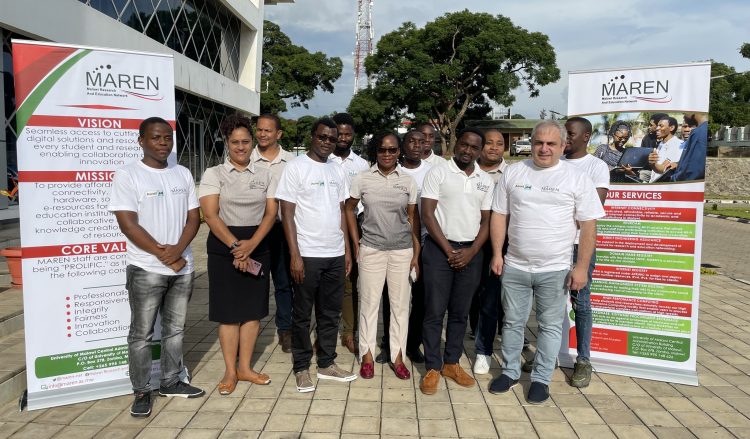
The Malawi Research and Education Network (MAREN) recently inaugurated its NREN Twinning Programme in collaboration with the National Research and Academic Network of Armenia (ASNET-AM). Coordinated by the European Research and Education Network (GEANT) through the European Union Co-funded AfricaConnect project, this twinning initiative brought ASNET-AM officials, Dr. Hrachya Astsatryan and Naira Kocharyan to Malawi. During their visit, the officials conducted comprehensive training workshops covering High-Performance Computing, Big Data, Data Analytics, and NREN Communication and Marketing activities. The two-day training sessions, held at the Malawi University of Business and Applied Sciences (MUBAS) on February 5-6, 2024, accommodated over 21 participants from MAREN’s member institutions. In an exclusive interview, Dr Astsatryan shared insights into the HPC and Big Data training, shedding light on the valuable knowledge and skills imparted to the participants. Excerpts:
MAREN: Welcome, it’s a pleasure to have you in Malawi and at MAREN. To begin, could you introduce yourself, state your position, and elaborate on your role?
HA: Thank you for the warm welcome. I’m Dr. Hrachya Astsatryan, CEO of the Armenian Academic and Research Network (ASNET-AM). ASNET-AM operates under the Institute for Informatics and Automation Problems with the National Academy of Sciences of Armenia.
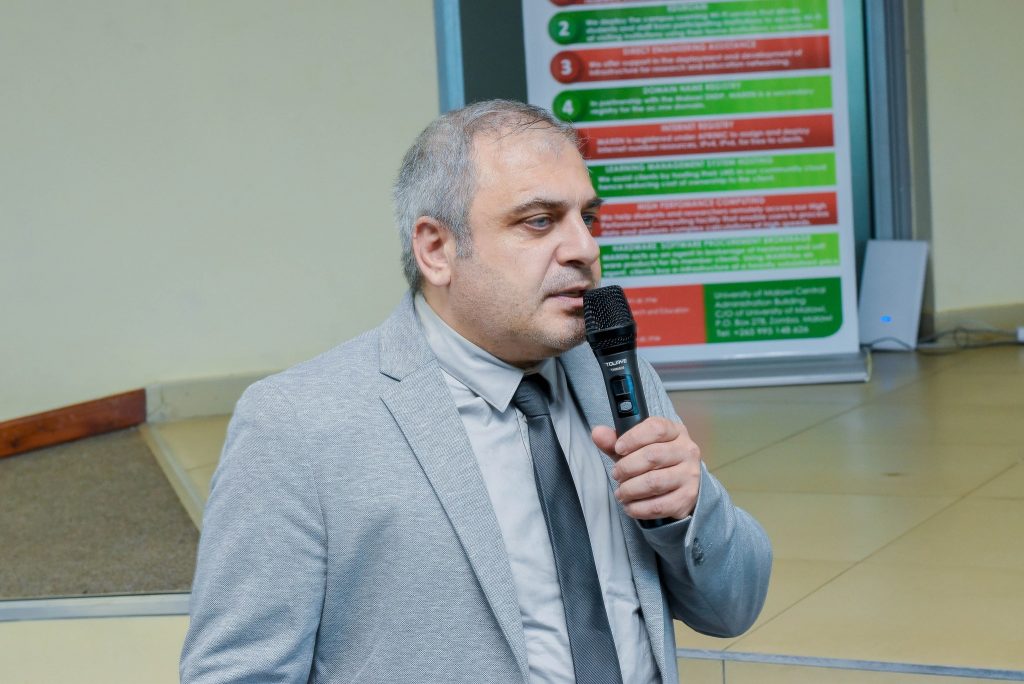
MAREN: In terms of size and membership, how does ASNET-AM compare to MAREN?
HA: ASNET-AM comprises around 25 individuals working in various domains such as communication, cloud computing, security, data analysis, and monitoring. We provide connectivity and services to approximately 60 research organizations, museums, and stakeholders.
MAREN: How long has ASNET-AM been operating, and when did the NREN start?
HA: ASNET-AM has been operating for almost 30 years, providing services in Armenia.
MAREN: You are here on the NREN Twining program with MAREN. Can you describe the relationship, objectives, and what you intend to achieve?
HA: We identified common challenges and focus areas, such as high-performance computing (HPC), data analytics, and security. Our goal is to reinforce collaboration by utilizing giant frameworks, conducting joint visits, organizing training activities, and connecting our user communities. This collaboration aims to bring mutual benefits in networking, computing, and data infrastructures.
MAREN: You are facilitating the HPC Training Workshop. How would you explain HPC in simple terms to someone unfamiliar with it?
HA: HPC, or high-performance computing, involves using supercomputers or large computing systems to address complex scientific and societal challenges. It allows us to tackle issues like climate change, water monitoring, molecular dynamics simulations, and genomics by processing large and intricate datasets efficiently. HPC is like a super machine made up of many interconnected computers working together. It accelerates the simulation time for applications, enabling faster processing of complex problems.
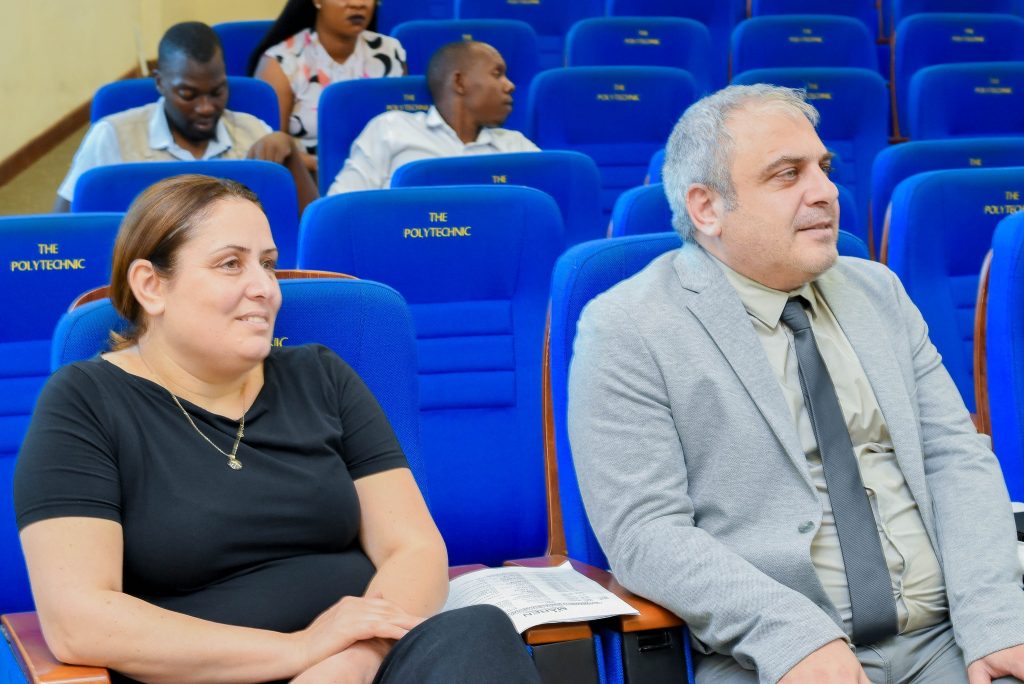
MAREN: How can researchers use the HPC, and how do they access it?
HA: The training aims to demystify the process, making it accessible. Researchers can utilize available resources in MAREN by understanding the models, software packages, and libraries. Access involves submission of jobs, monitoring, and utilizing the resources efficiently.
MAREN: Given the experience in Armenia, could you share ground-breaking research initiatives facilitated by HPC?
HA: HPC has enabled researchers to achieve significant publications in top journals, especially in complex fields like molecular simulations. Access to HPC resources allows for the simulation of intricate problems, leading to more valuable results for publication or demonstration.
MAREN: What other services does ASNET-AM offer in terms of HPC?
HA: ASNET-AM provides a rich portfolio of services, including different packages of models, web-based rich services, and human support for parallelizing applications. These services cater to various user communities’ needs.
MAREN: In terms of user access, is it limited, and how does the queue system work?
HA: Access to resources is determined by a queue system. If a job is in the queue and resources are available, the next job in line gains access.
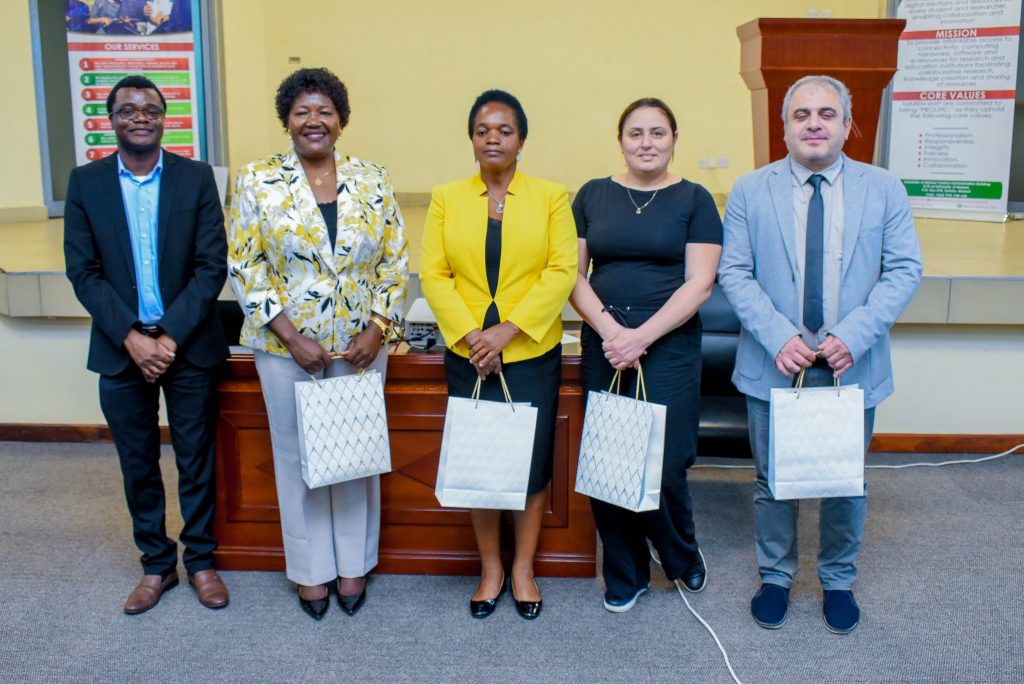
MAREN CEO, Solomon Dindi (FL), Malawi Ministry of Education Principal Secretary, Chikondano Mussa (second from left), MUBAS Vice Chancellor, Prof. Nancy Chitera (C) ASNET-AM Communications Officer Naira Kocharyan and ASNET-AM CEO, Dr. Hrachya Astsatryan pose for a photograph during the event.
MAREN: Can individuals visually create computers in HPC and run models?
HA: Yes, individuals need an account provided by the HPC administrator. With this account, they can create virtual machines and run models on the HPC resources.
MAREN: Returning to the training that you conducted, do you believe it adequately equips participants to use the facility or instruct others in its usage?
HA: Absolutely. Participants have grasped that using these facilities is not as challenging as it might seem initially, which is a positive development. They’ve learned how to submit jobs, monitor processes, and retrieve information. I’m optimistic that they will continue to improve their utilization of the facilities.
MAREN: Were there any practical sessions during the training?
HA: Yes, indeed. We conducted practical sessions to submit pilot jobs, allowing participants to see the results. This hands-on approach helped them understand the entire workflow of working with the HPC system.
MAREN: Apart from HPC, ASNET-AM and MAREN also covered big data and data analytics in the training. Could you provide insights into this?
HA: Big data, consisting mostly of unstructured data, poses challenges. We explored technologies to store and process this data efficiently, considering factors like volume, variety, and velocity. Participants gained an understanding of big data technologies and are now equipped to study and implement them.
MAREN: Beyond HPC and big data, what other thematic areas do you see as potential collaboration points between ASNET-AM and MAREN?
RK: We are currently collaborating on HPC, big data, security, networking, marketing communication, and cloud computing. These topics hold mutual interest, and we plan to continue working together, not only through training but also by bringing user communities from both countries to collaborate on joint projects.
Subscribe To Our Newsletter
Get updates and learn from Us
More To Explore
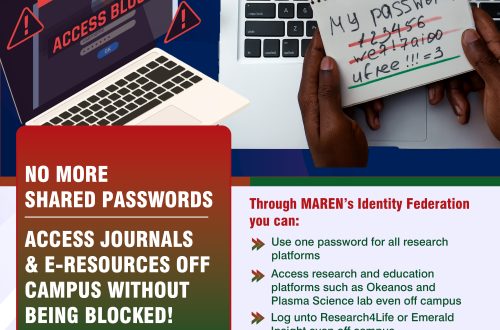
Breaking the Campus Barrier: How Malawian Students and Researchers Are Accessing Knowledge Anywhere
For years, access to global academic resources in many Malawian universities came with clear limitations.
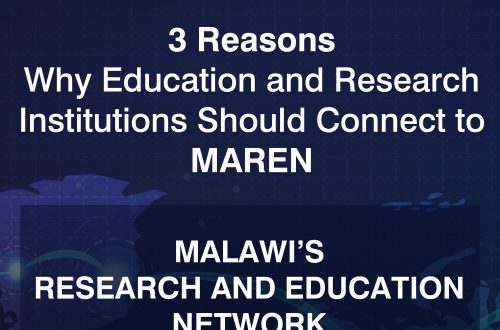
3 Reasons Why Malawi’s Education and Research Institutions Should Connect to MAREN
The Malawi Research and Education Network (MAREN) supports universities and research institutions across Malawi to
